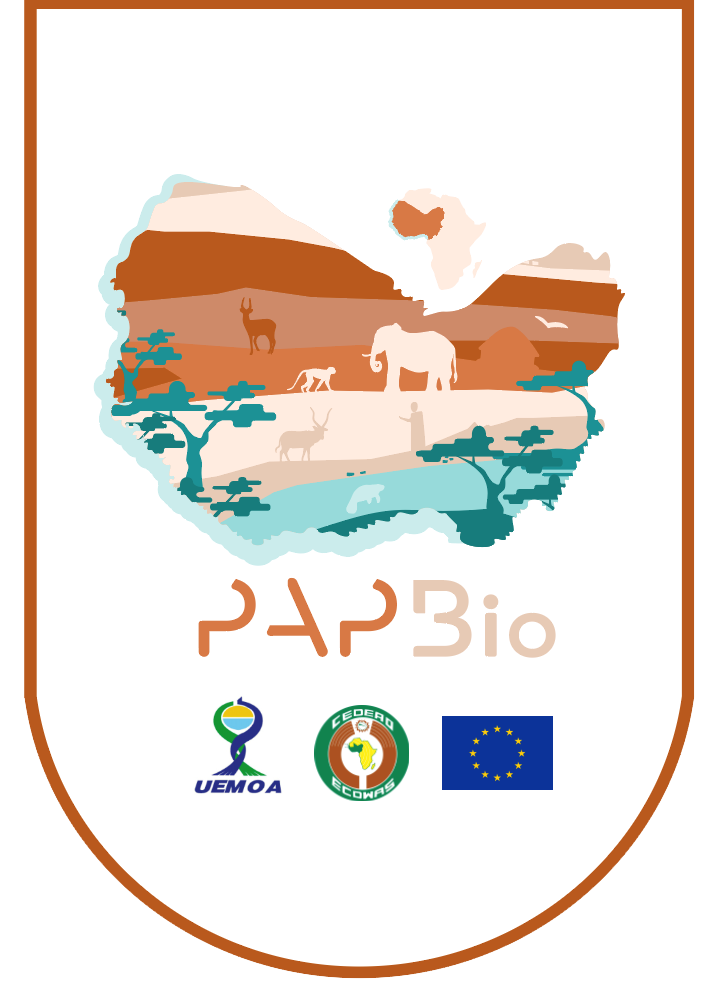 Sustainable management of biodiversity and protected areas in West Africa
Sustainable management of biodiversity and protected areas in West Africa

With the support of the European Union
As part of the implementation of the European Union's Regional Indicative Program (RIP) in West Africa 2014–2020 (11th European Development Fund), in Priority Area 3: Resilience, food and nutritional security and natural resources, in consultation with ECOWAS and UEMOA, an action to support the preservation of biodiversity and fragile ecosystems, environmental governance and climate change in West Africa was selected - PAPBio" (ROC/FED/039-269).
Within the framework of the implementation of the Regional Indicative Program (RIP) of the European Union in West Africa 2014-2020 (11th European Development Fund), and specifically in its priority area 3 : "Resilience, food and nutritional security and natural resources", it was selected in consultation with the ECOWAS and WAEMU Commissions an action to support the preservation of biodiversity and fragile ecosystems, environmental governance and climate change in West Africa (PAPBio).
The overall objective of the PAPBio program is to promote endogenous, sustainable and inclusive economic development that meets the challenges of climate change. Specifically, the program will achieve integrated protection of biodiversity and fragile ecosystems and enhanced resilience to climate change through improved regional governance of transboundary protected areas and biodiversity.
In its strategic approach to nature conservation (Beyond Elephants, page 376), the European Union identifies fifty-three (53) protected areas as priorities, mostly grouped in 21 priority conservation landscapes. The projects of Component 1 of the PAPBio program, as well as the PAPFor program of the 11th EDF RIP in the Upper Guinean forest area, will support the sustainable management of nearly thirty-five (35) strictly terrestrial protected areas and about ten (10) coastal and marine protected areas.
The proposed action is consistent with the priorities identified for the Protection of the Environment, Biodiversity and the Fight against Climate Change in West Africa of the Regional Indicative Program of the 11th European Development Fund, responding to result area 3, objective 3.2 of the RIP. The action is in line with the environmental policies and strategies of the West African Economic and Monetary Union (WAEMU) and the Economic Community of West African States (ECOWAS), as well as with the EU strategic framework by contributing to the specific objectives of the "Environment and Climate Change" thematic area of the "Global Public Goods and Challenges" program. The action is also in line with the 2030 Agenda by contributing to the Sustainable Development Goals (SDGs) 13, 14 and 15, as well as to the Aichi Targets of the Convention on Biological Diversity, and in the achievement of the strategic and operational goals of the 4th Strategic Plan 2016-2024 of the RAMSAR Convention.
Copyright © 2021 UICN - Mentions légales - Design and hosting by 9bisfactory.net - Powered by Twokiwi